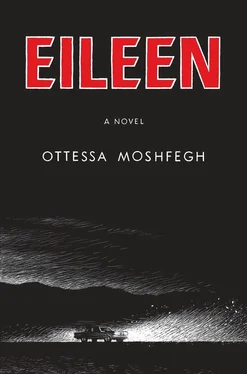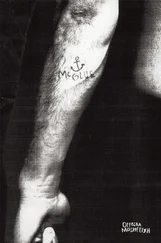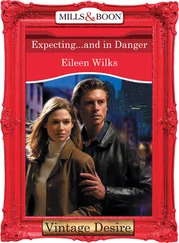The warden’s secretary was a woman so steely-eyed and fat she appeared never to be breathing, her heart never beating. Her death mask was impressive. The only sign of life she ever gave was when she lifted a finger to her mouth and a centimeter of pale lavender tongue came out to wet its tip. She leafed through the stack of envelopes I handed her robotically, then turned away. I lingered for a minute or two, pretending to count days on the calendar hanging on the wall by her desk. “Five days till Christmas,” I said, trying to sound cheerful.
“Praise God,” she replied.
I often think of Moorehead and its laughable credo, parens patriae, and cringe. The boys at Moorehead were all so young, just children. They frightened me at the time because I felt they didn’t like me, didn’t find me attractive. So I tried to cast them off as dunces and wild animals. Some of them were grown, tall and handsome. I was not immune to those boys either.
Back at my desk, there was plenty I could have pondered. It was 1964, so much on the horizon. In every direction something was getting torn down or built up, but I mostly pondered myself and my own misery while I arranged my pens in the cup, crossed off the day on my desk calendar. The second hand on the clock shook and bolted forward like someone at first terrified with anxiety, then, bolstered by desperation, jumping off a cliff only to get stuck in midair. My mind wandered. Randy, more than anywhere else, was where it liked to go. When my paycheck came that Friday, I folded it and slipped it into my bosom, which was hardly a bosom. Just small, hard mounds, really, which I hid beneath layers of cotton underthings, a blouse, a wool jacket. I still had that pubescent fear that when people looked at me, they could see through my clothes. I suspect nobody was fantasizing about my naked body, but I worried that when anyone’s eyes cast downward, they were investigating my nether regions and could somehow decipher the complex and nonsensical folds and caverns wrapped up so tightly down there between my legs. I was always very protective of my folds and caverns. I was still a virgin, of course.
I suppose my prudishness did its duty and saved me from a difficult life such as my sister’s. She was older than me and not a virgin at all and lived with a man who was not her husband a few towns over—“whore” is what our mother had called her. Joanie was perfectly nice, I suppose, but she had a dark, gluttonous streak beneath her buoyant, girlish exterior. She once told me how Cliff, her boyfriend, liked to “taste” her as she woke up in the mornings. She laughed as my face contorted in perplexity, then turned red and cold when I caught her drift. “Isn’t that funny? Isn’t that the most?” she tittered. I envied her plenty, sure, but I never let on. I didn’t really want what she had. Men, boys, the prospect of coupling with one of them seemed ridiculous. The most I desired was a wordless affair. But even that scared me. I had my crush on Randy and a few others, but they never went anywhere. Oh, those poor nether regions of mine, swaddled like a baby in a diaper in thick cotton underpants and my mother’s old strangulating girdle. I wore lipstick not to be fashionable, but because my bare lips were the same color as my nipples. At twenty-four I would give nothing to aid any imagining of my naked body. Meanwhile, it seemed, most young women were intent on doing the opposite.
There was a party at the prison that day. Dr. Frye was retiring. He’d been the very elderly man in charge of doling out gross amounts of sedatives to the boys for decades as the prison’s psychiatrist. He must have been in his eighties. I’m old now myself, but when I was young I really didn’t care for elderly people. I felt their very existence undermined me. I couldn’t have cared less that Dr. Frye was leaving. I signed the card when it crossed my desk with precise, schoolgirl cursive, wrist bent high in sarcasm: “So long.” I remember the image on the front was a black ink drawing of a cowboy riding off into the sunset. Good grief. Over the years at Moorehead, Dr. Frye would come occasionally to observe the family visits, which it was my duty to administrate on a daily basis, and I’d watched him stand at the open doorway to the visitation room, nodding and clacking his gums and hmming, and now and then interjecting with long, wobbling fingers to point for the child to sit up straight, answer the question, apologize, and so on. And he never once said “Hello,” or “How are you, Miss Dunlop?” I was invisible. I was furniture. After lunch — I think I left that can of tuna in my locker, uneaten — they called the staff to the cafeteria for cake and coffee to bid Dr. Frye adieu, and I declined to participate. I sat at my desk and did nothing, just stared at the clock. At some point I got an itch in my underwear, and since there was nobody to see me, I stuck my hand up my skirt to get at it. As swaddled as they were, my nether regions were difficult to scratch. So I had to dig my hand down the front of my skirt, under the girdle, inside the underwear, and when the itch had been relieved, I pulled my fingers out and smelled them. It’s a natural curiosity, I think, to smell one’s fingers. Later, when the day was done, these were the fingers I extended, still unwashed, to Dr. Frye when I wished him a happy retirement on his way out the door.
• • •
W orking at Moorehead, I wouldn’t say I was sheltered, exactly. But I was isolated. I did not get out much at all. The town where I lived and had grown up — I’ll call it X-ville — had no tracks of which there could be a wrong side per se. There were grittier areas, however, for the blue-collar and troubled people, a bit closer to the ocean, and I’d driven past their ramshackle houses with yards littered with children’s toys and garbage only a few times. Seeing the people on the roads, so forlorn and angry and uninterested, delighted me and scared me and made me feel ashamed not to be so poor. But the streets in my neighborhood were all tree lined and orderly, houses loved and tended to with pride and affection and a sense of civic order that made me ashamed to be so messy, so broken, so bland. I didn’t know that there were others like me in the world, those who didn’t “fit in,” as people like to put it. Furthermore, as is typical for any isolated, intelligent young person, I thought I was the only one with any consciousness, any awareness of how odd it was to be alive, to be a creature on this strange planet Earth. I’ve seen episodes of The Twilight Zone which illustrate the kind of straight-faced derangement I felt in X-ville. It was very lonely.
Boston in all its brick and ivy gave me hope that there was intelligent life out there, young people living as they pleased. Freedom was not so far away. I’d gone there only once, a trip I took with my mother to see a doctor when she was dying, a doctor who couldn’t cure her but who did prescribe medicine that would make her “comfortable,” as he called it. Such an excursion felt glamorous to me back then. It’s true that I was twenty-four. I was an adult. You’d think I could have driven anywhere I wished. Indeed, my last summer in X-ville, toward the end of one of my father’s longer benders, I took a trip down the coast. My car ran out of gas and I was stranded on a country road just an hour from home until an older woman stopped and gave me a dollar and a ride to the filling station and told me to “plan ahead next time.” I remember the wise woggle of her double chin as she steered the car. She was a country woman, and I respected her. That was when I began to fantasize about my disappearance, convincing myself bit by bit that the solution to my problem — the problem being my life in X-ville — was in New York City.
Читать дальше












